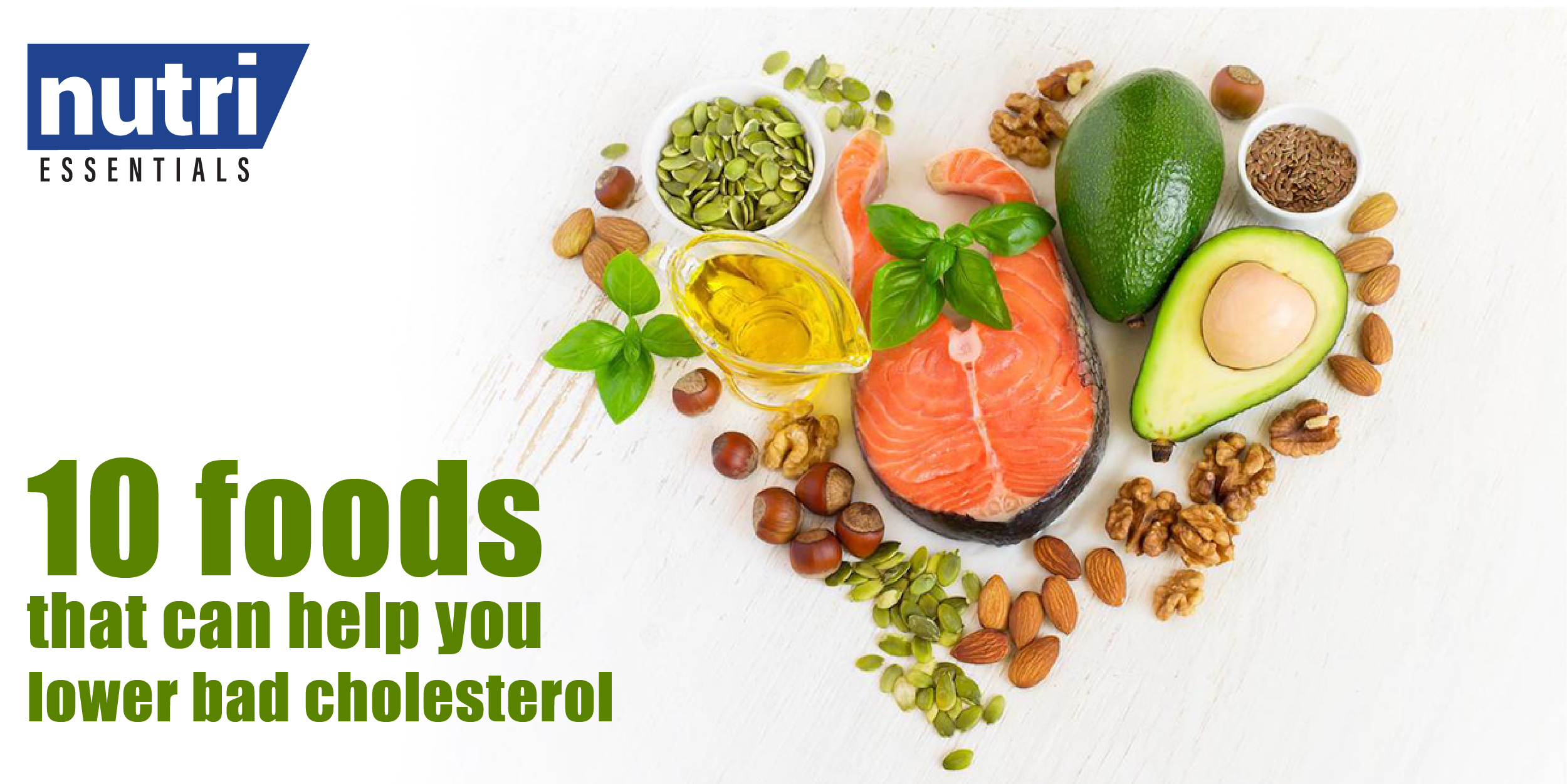Quality products for you & your family to stay ahead in life.

Cholesterol is a waxy, fat-like substance that's found in all the cells in your body. Your body needs some cholesterol to make hormones, vitamin D, and substances that help you digest foods. Your body makes all the cholesterol it needs
Changing your diet will help you lower your cholesterol and increase the armada of fats in your bloodstream. The best way to maintain a low cholesterol diet is to include foods that lower LDL, the unhealthy cholesterol-carrying particle that leads to artery-clogging atherosclerosis.
Cholesterol is reduced in a variety of ways by different foods. Some contain soluble fiber, which binds cholesterol and its precursors in the digestive system and pushes them out of the body until they reach the bloodstream. Some include polyunsaturated fats, which help to lower LDL cholesterol. Some also contain plant sterols and stanols, which prevent cholesterol from being absorbed by the body.
Here is the list of 10 foods that can lower your cholesterol
1. Oats:- Breakfast with a bowl of oatmeal or cold oat-based cereal like Cheerios is a simple first move toward reducing cholesterol. It contains 1–2 grammes of soluble fibre. For an extra half-gram, add a banana or some strawberries. Current dietary recommendations call for 20 to 35 grams of fiber a day, including at least 5 to 10 grams of soluble fiber.
2. Beans:- Soluble fiber is particularly abundant in beans. They also take longer for the body to digest, so you'll feel fuller for longer after eating them. One of the reasons beans are a portion of good weight-loss food is because of this. Beans are a very versatile food with so many options — from navy and kidney beans to lentils, garbanzos, black-eyed peas, and more — and so many ways to cook them.
3. Nuts:- Almonds, walnuts, peanuts, and other nuts are healthy for the heart, according to a slew of reports. A daily serving of 2 ounces of nuts will reduce LDL cholesterol by about 5%. Nuts also provide nutrients that help to protect the heart in other ways.
4. Soy:- Soy is a legume. Soybeans and foods made from them, such as tofu and soy milk, were once touted as a strong cholesterol-lowering product. According to studies, eating 25 grams of soy protein per day (10 ounces of tofu or 2 1/2 cups of soy milk) will reduce LDL cholesterol by 5% to 6%.
5. Fiber supplements:- Supplements offer the least appealing way to get soluble fiber. Two teaspoons a day of psyllium, which is found in Metamucil and other bulk-forming laxatives, provide about 4 grams of soluble fiber.
6. Avocados:- Avocados are one of the most nutrient-dense fruits available. They're high in monounsaturated fats and fiber, two nutrients that help lower "poor" LDL cholesterol while increasing "healthy" HDL cholesterol. Avocados have been shown to reduce cholesterol in clinical trials.
7. Fatty Fish:- Long-chain omega-3 fatty acids are abundant in fatty fish like salmon and mackerel. Omega-3 fatty acids improve heart health by increasing "good" HDL cholesterol while also reducing inflammation and stroke risk. Adults who consumed the most non-fried fish were the least likely to develop metabolic syndrome, a cluster of symptoms that involves elevated blood pressure and low "good" HDL levels, according to a broad 25-year survey. Another major study found that eating tuna or other baked or broiled fish at least once a week reduced the risk of stroke by 27%.
8. Dark Chocolate:- Dark chocolate is mostly made up of cocoa. While it may seem to be too good to be true, evidence backs up reports that dark chocolate and cocoa may help lower "bad" LDL cholesterol. Safe adults consumed a cocoa beverage twice a day for a month in one report. They saw a 0.17 mmol/l (6.5 mg/dl) reduction in "bad" LDL cholesterol. Their blood pressure fell, and their HDL cholesterol (the "good") increased.
9. Garlic:- Garlic has been used as a cooking ingredient and medicine for decades. It contains several potent plant compounds, including allicin, which is the main active ingredient. Garlic has been shown in studies to reduce blood pressure in people with high blood pressure and to help lower total and "bad" LDL cholesterol, but the latter effect is less potent. Many studies use aged supplements, which are thought to be more effective than other garlic preparations since relatively large quantities of garlic are needed to achieve this heart-protective effect.
10. Extra Virgin Olive Oil:- Extra virgin olive oil is one of the most essential ingredients in the heart-healthy Mediterranean diet. Throughout a five-year trial, older adults at risk of heart disease were given 4 tablespoons (60 ml) of extra virgin olive oil per day, along with a Mediterranean diet. When compared to people who ate a low-fat diet, the olive oil community had a 30% lower risk of major heart events like stroke and heart attack. Olive oil is high in monounsaturated fatty acids, which can help increase "good" HDL cholesterol while lowering "bad" LDL cholesterol.
To sum up, Cholesterol levels that are too high are a significant cause of heart disease. Fortunately, you can reduce the risk by including those items in your diet. Increasing your consumption of these foods will help you maintain a balanced diet and a healthy heart. You can also use methods like mindful eating to ensure that you enjoy your meal and are satisfied without overindulging.

